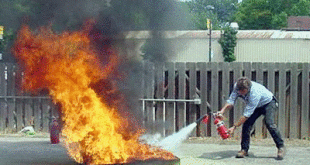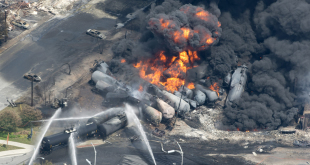I’d like to hand some serious props to the market manipulators at Goldman Sachs The Street*. In case you missed it, GS published their top 19 positions to beat around like a domestic disturbance call at 2 am, and BAS made the cut. In fact they gave it spot 2 on the list.
What was the reason for singling out BAS – a stock which is already down 86% from its long gone highs of 2014 – over any of its other competitors?
*The good commenters of this site have justly pointed out that although The Street is piggybacking off of Goldman’s work, the Street themselves seem to be the source of the godlessness of reason that follows. In my raw hatred I missed that – but The Street should know better too. I hope for Goldman Sach’s sake that their reasoning is better than this.
The reasons given are pretty terrible. Let’s walk through them:
1) “The company, on the basis of change in net income from the same quarter one year ago, has significantly underperformed when compared to that of the S&P 500 and the Energy Equipment & Services industry. The net income has significantly decreased by 2076.9% when compared to the same quarter one year ago, falling from $2.44 million to -$48.30 million.”
Okay, first of all, I understand that business majors are business majors primarily because they can’t do math. I sat through the mandatory business statistics classes too as an undergraduate, ironically while taking real statistics classes at the same time. It’s like comparing brands of cigarettes with cigars – it just isn’t even the same league.
Here, GS The Street’s expert analytics is at play, taking $2.44 – (-$48.3) = $50.74 million. Then we divide this magnitude by $2.44 and WOALA! 2,077% decrease! That’s huge!
No. Just no.
So here’s a hypothetical. Suppose a similar company had been making $0 million in income, and then had a $1 million loss. Using this genius formula, that company would have lost INFINITY %. Is such a company worse or better off than BAS? I’d say it looks better to me.
Next consider a similar company that had $100 million in income prior…much more money than BAS. Now, suppose they lose the exact same amount of money as BAS – $48.3 million.
This second company GS The Street would say only experienced a 148.3% loss, despite being in the exact same situation as BAS.
Yes this seems like a useful metric.
You can’t freaking divide across zero, dingbats. Division in this fashion only makes sense when all the numbers are nicely contained in the set of positive real numbers. Goldman Sach’s The Street’s math tells us nothing.
2) “Return on equity has greatly decreased when compared to its ROE from the same quarter one year prior. This is a signal of major weakness within the corporation. Compared to other companies in the Energy Equipment & Services industry and the overall market, BASIC ENERGY SERVICES INC’s return on equity significantly trails that of both the industry average and the S&P 500.”
Uh huh…because after your first encounter with numbers, I definitely believe that now…
3) “The gross profit margin for BASIC ENERGY SERVICES INC is rather low; currently it is at 20.98%. It has decreased significantly from the same period last year. Along with this, the net profit margin of -24.37% is significantly below that of the industry average.”
Fair enough. Now go talk to a few of their competitors who have no more clients. Period. Because I’ve seen those. I imagine they would envy a low gross profit margin.
Incidentally, net profit margins are only negative because of depreciation of equipment. In this environment, how much of that do you think they’ll be needing to buy new for the foreseeable future?
4) “Net operating cash flow has significantly decreased to $22.34 million or 65.86% when compared to the same quarter last year. In addition, when comparing to the industry average, the firm’s growth rate is much lower.”
And yet, management has pegged outgoing cash flow so that net cash remains stable. They even made an extra debt repayment to shore up their position. Provided they don’t make another, cash levels should increase. Which is all that matters at this point. You need to have money to play the game. Not better stats…poorly calculated.
5) “Although BAS’s debt-to-equity ratio of 3.42 is very high, it is currently less than that of the industry average. Even though the debt-to-equity ratio is weak, BAS’s quick ratio is somewhat strong at 1.46, demonstrating the ability to handle short-term liquidity needs.”
Just stop there. Then put this bullet point at the top, because it’s the only one that matters.
The game is chicken, gentlemen. Nobody cares how fast you were going once you’ve gone over the cliff…
But hey I hope their shorts can close out with this 10% spike lower. Thanks a lot for that. I’m almost tempted to buy, save that I think I have more than enough skin in this game already.
Aside from Goldman Sachs The Street (glory days obviously behind it), here’s an update from BAS management that perhaps explains why the most recent numbers have been so volatile.
“Recently, in a few selected markets, stimulation pricing has fallen to levels where cash margins at the field level do not support regular maintenance capital expenditures on equipment. In these instances, we have either temporarily stacked our equipment or relocated frac spreads to other markets.”
The company is refusing to play in environments where operation is equivalent to suicide. They are moving assets to respond to weak pricing, situating around a core business, and doing all they can to toe the line between maintaining clients and making enough cash to justify keeping the doors open.
But you don’t just pack up and move instantaneously. It takes time and so yes their operation is going to gyrate. If you’re a shareholder like I am, you’d better learn to live with it.
This is the second worst environment for oil we have seen in 100 years. The worst happened just five years ago. The company is doing great all things considered. I would be much more worried if I was anybody else.
Comments »


